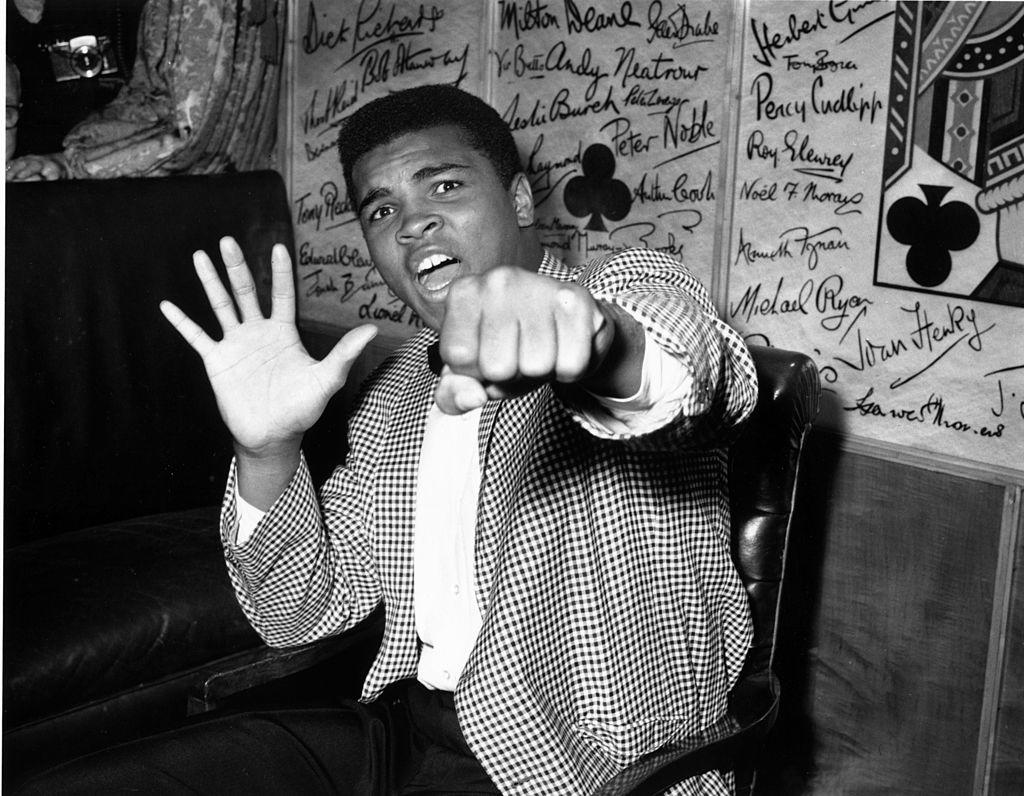
The now-late, Muhammad Ali was diagnosed with a degenerative disorder called Parkinson's Disease (PD) in 1984 at the age of 42.
Because he is one of the most high-profile cases of Parkinson's, there are a lot of questions surrounding his condition. Is boxing responsible? Did repeated blows to his head lead to the disease?
Many people know about Parkinson's. But most are confused about what exactly causes it.
Symptoms of Parkinson's Disease (PD):
- Tremor: can occur at rest, in the hands, limbs, or can be postural
- Muscular: stiff muscles, difficulty standing, difficulty walking, difficulty with bodily movements, involuntary movements, muscle rigidity, problems with coordination, rhythmic muscle contractions, slow bodily movement, or slow shuffling gait
- Sleep: daytime sleepiness, early awakening, nightmares, or restless sleep
- Whole body: fatigue, dizziness, poor balance, or restlessness
- Cognitive: amnesia, confusion in the evening hours, dementia, or difficulty thinking and understanding
- Speech: impaired voice, soft speech, or voice box spasms
- Mood: anxiety or apathy
- Nasal: distorted sense of smell or loss of smell
- Urinary: dribbling of urine or leaking of urine
- Facial: jaw stiffness or reduced facial expression
- Also common: blank stare, constipation, depression, difficulty swallowing, drooling, falling, fear of falling, loss in contrast sensitivity, neck tightness, small handwriting, trembling, unintentional writhing, or weight loss
What Causes PD?
According to the Parkinson’s Foundation, approximately 60,000 new cases of PD are diagnosed each year, adding to the one million people who currently have PD in the United States. Most people with Parkinson’s are diagnosed in their 60s, but about four percent of people are diagnosed before age 50.
Although doctors don't know what exactly causes Parkinson's, they believe it is caused by a combination of genetic and environmental factors. For example, in about 5 to 10 percent of patients, there is a strong family history of the disease.
The first sign of Parkinson's disease is usually a tremor in one hand, but over time people with the condition find it harder to...
...move. Their muscles stiffen and in severe cases people will feel locked in position. The condition progresses unpredictably, and leads to other problems such as difficulty sleeping and depression.
Ali began showing symptoms of the disease soon after retiring from the boxing ring in 1981. But his condition was not diagnosed until three years later, in 1984. By that stage he had developed tremors, his speech was slurred, and his body movements had become slow. Currently, Ali is unable to speak in public.
Other possible causes of PD include:
Toxins: Exposures to pesticides and herbicides have been linked to Parkinson’s disease. Though scientists haven’t yet determined the exact cause of Parkinson’s disease, it’s believed a combination of genetic and environmental factors are involved.
Viruses: In the early 1900s, people who came down with a form of the encephalitis virus became stuck in a trance-like state in which they couldn't move or speak. When neurologist Dr. Oliver Sacks treated these people with levodopa, the same medication used to treat Parkinson's, they briefly came "back to life."
Head Trauma: Researchers have studied whether trauma to the head, such as what Ali experienced consistenly as a professional boxer, may play a role in the development of the disease.
Structural Problems: Strokes and hydrocephalus (fluid buildup in the brain) are two conditions that may lead to an increased risk of PD.
More Information
The Parkinson’s Foundation has more on living well with Parkinson’s Disease.








